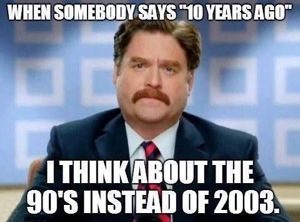so, i told you i was going to need a second post to cover everything that was mentioned in this weeks unlecture. this post will also probably cover some stuff from last weeks class and my most recent post about hypertext. but anyhow, onwards and upwards! (speaking of, i saw up for the first time the other day. it is brilliant.)
one of the main interesting things that was mentioned by both Elliot and Jasmine was the Korsakow program which i had neither heard of or was able to spell. but it’s a pretty cool concept nonetheless. similar to a hypertext novel, it does what a typical film can’t do by being fluid and changeable. it allows the viewer to create their own film by choosing the path that they wish to take. every time you return to something, it is completely different to what is was the first time you do it. now, this concept emphasises what was described as the “gap” between the media maker and the receiver. in any form of medium, the author can never guarantee the receiver will decipher the intended meaning of the text being created. and so hypertext and korsakow is allowing this gap to flourish so that rather than a specific meaning intended by the author that may not be received, each member of the audience can make their own personal interpretations of the text. there are an unlimited number of pathways one can take. it’s like in the brain, any one idea or thought can lead down a large variety of different neural pathways that span across the whole brain, each one leading to a different thought and each one individual.
this whole notion of hypertext leads on from the advancement of technology today. everything has had to change and adapt to fit into the new society. if a medium cannot adapt, it cannot survive. and hypertext is about joining all the little parts of the world together to make one big web of networks and connections where everything can be joined in multiple ways rather than just one linear connection. and our blogs allow us to form those connections and become a part of the wider network. this is similar to the niki’s we’ve been working on in class. each time one group presents their work to the rest, it’s a chance for everyone to gain. the group can get feedback about there work and the others can get both new knowledge and ideas about extra things they could include in their posts. the aim of the niki’s is to create a learning space for everyone in the course to be able to contribute to, in essence, to create a network that they have all worked on.
someone asked in the lecture, “do the blogs even count if no-one is reading them?”. now this was a matter i had considered, because i write as if people are listening, adrian called them our “imaginary audience”. but that doesn’t mean that the imaginary audience won’t eventually become a real audience. that’s why we make those connections, so that we can get that audience. i think it was jasmine who asked “why do you write a personal journal or diary if it’s not intended to be read by anyone?”. and that’s a brilliant point. when i was young i kept a diary. i never wanted anyone to read it, but i still wrote in a manner of telling a story to a reader, just like how i write this blog assuming people are reading it. so is this blog my diary? i guess while it hovers at a low 5 visitors a day it probably is. but hopefully i get up there soon.
and one more thing from the lecture. it doesn’t really relate to anything but i thought it was cool. in fact, i don’t even think it actually happened, i think i just heard something. but at one point adrian said “automatically” and it sounded like “automagically”. now i don’t know if he really said that or i just had a major mishear but either way, it’s an awesome word that i think really represents how our world functions today, especially if you consider it in the eyes of some of the people we are researching for our niki’s, (i’m looking at you charles babbage) who would just see everything we have today as a sort of magic. who could have imagined 100 years ago where we would be today in terms of technology. it really does seem like the world is “automagic”
 Now, to me, that sounds crazy. as you all know, i am a traditional book lover. and i will read my books over and over again. but to me it does get a bit repetitive and i often find myself wishing that the book could change somehow.
Now, to me, that sounds crazy. as you all know, i am a traditional book lover. and i will read my books over and over again. but to me it does get a bit repetitive and i often find myself wishing that the book could change somehow.





